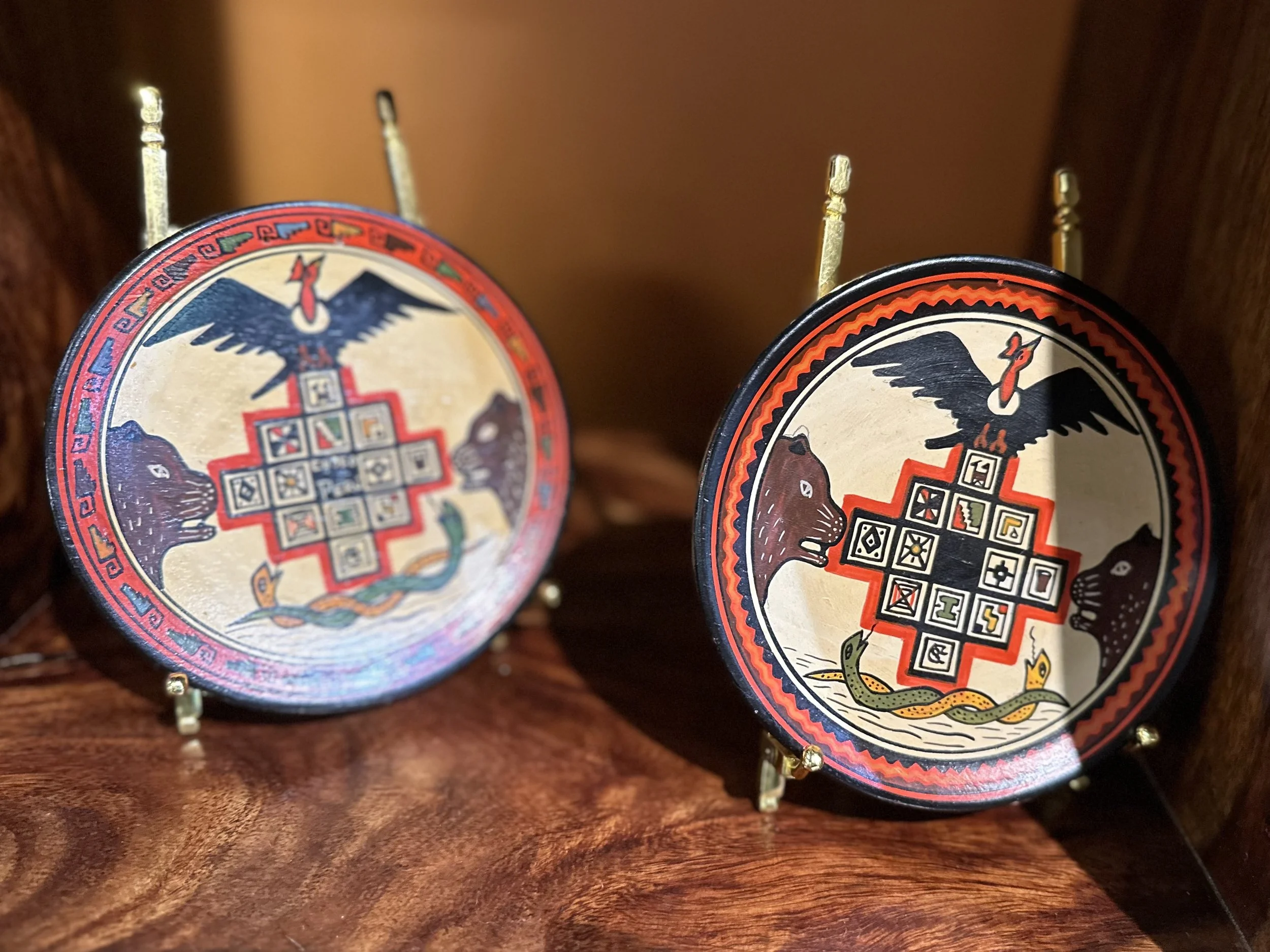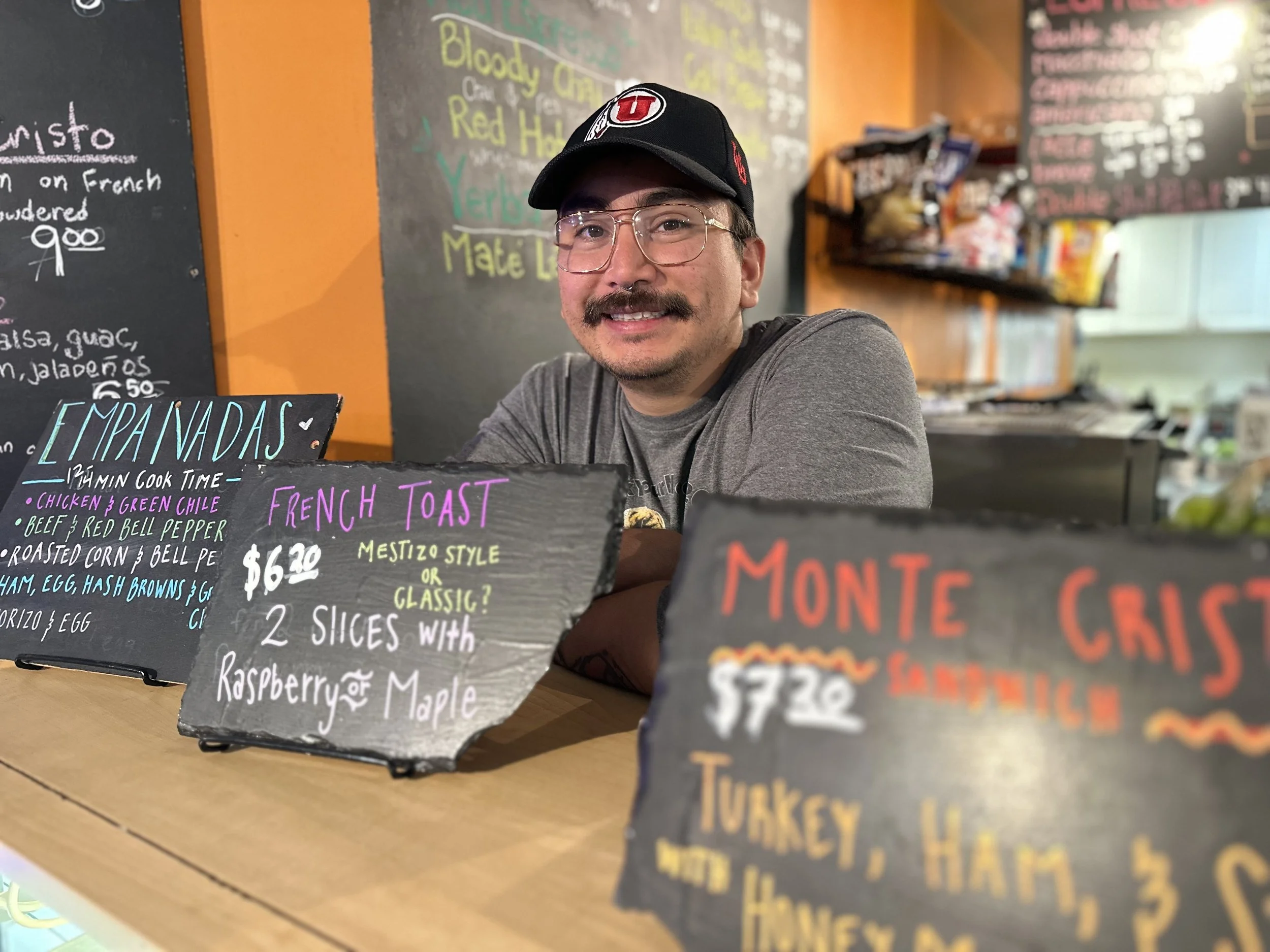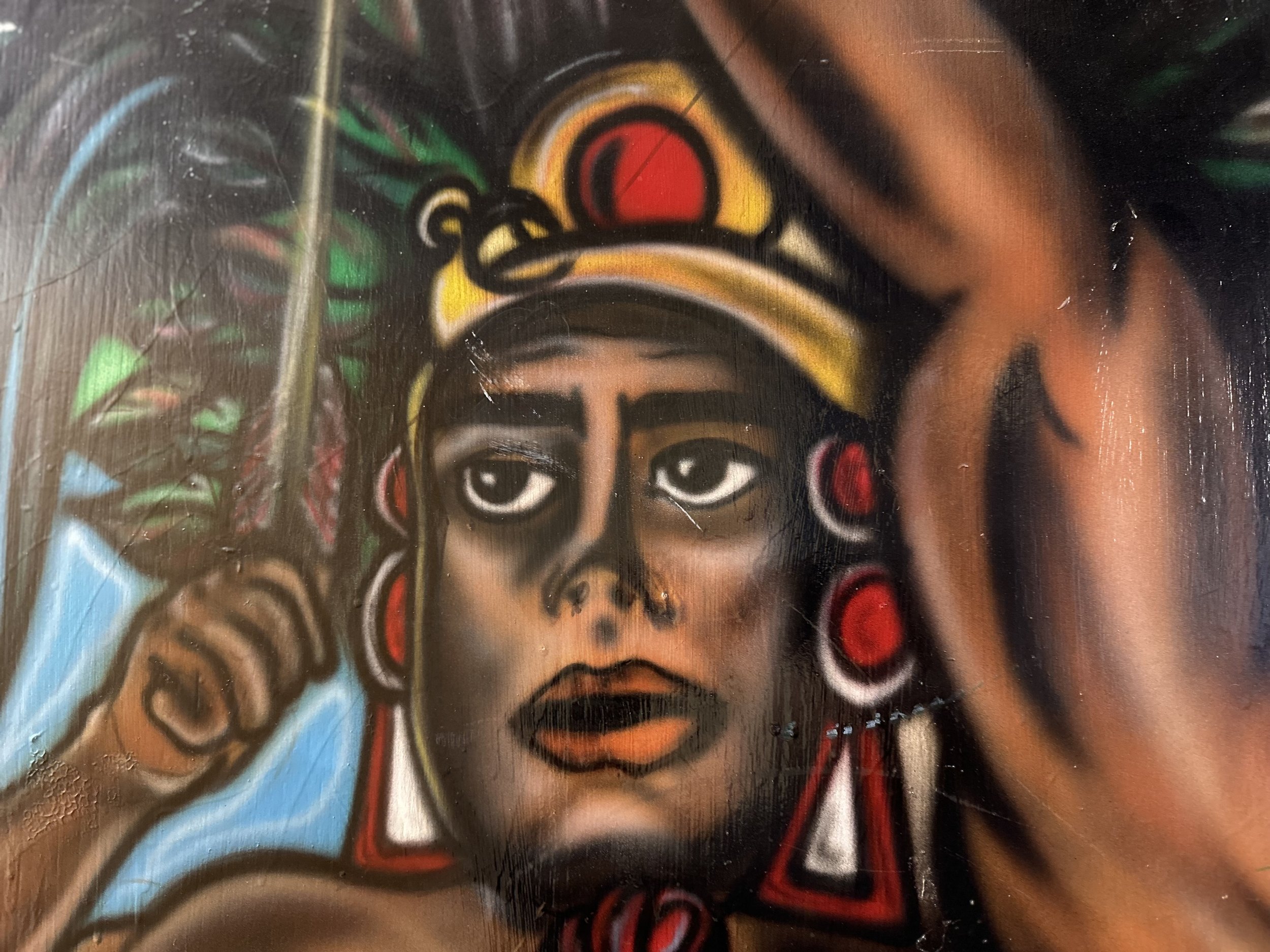Mestizo Coffeehouse
“I was born in Mexico, or at least my father liked to think that I was.” David Galvan, volunteer manager of Mestizo Coffeehouse begins his story smiling as he recalls his father holding him up as a child in their home in Utah and proudly proclaiming, “Who’s my beautiful Mexican baby?”
Growing up in Murray, Utah, a predominantly white, LDS community, David learned early on what it meant to navigate different worlds. His family was one of the few Mexican and Catholic families in the area. “You don’t realize you’re different at first, but over time, you see how deeply rooted the divides are,” he reflects, sharing experiences of childhood racism and the challenges of being Mexican in Utah during the 60s and 70s.
David’s journey took many turns before he came to Mestizo. Determined and resilient, he moved out at sixteen, finding his own way while balancing work and self-sufficiency. He took on a series of jobs - from construction to 7-Eleven and pizza shops - building a strong work ethic and a deep respect for community. These experiences led him into a career in real estate, where he discovered his ability to lead and make a difference. Along the way, he met his wife, Maria Garciaz, who would profoundly influence his life and vision for Mestizo. “Maria is a force of nature,” David says proudly.
Maria's journey to becoming a leader in community organizing began with her family’s roots as migrant farm workers. One of seven children, she grew up moving with the seasons, picking potatoes, tomatoes, and cherries alongside her parents. Her first job, picking grapes in Lodi, California, introduced her to the women who organized both the work and the families, making sure the children received an education - a concept that remained with Maria throughout her life.
When Maria was fourteen, her family settled in Salt Lake, where her father secured a job as a chef. This stability brought a deep sense of relief to Maria, though their move to a predominantly white neighborhood was met with resistance. The neighbors circulated a petition to have them leave, fearing that a Latino family would lower property values. Maria’s mother, however, chose not to harbor resentment. Instead, she gradually won over the community with warm invitations and traditional Mexican cooking. This lesson would shape Maria’s future work.
From humble beginnings, Maria rose to lead NeighborWorks, a nonprofit that provides affordable housing opportunities and strengthens communities. Over the past forty years, Maria has served as executive director, overseeing transformative projects across the city. She sits on multiple boards, including the University of Utah and American Express, and she served on the Olympic organizing committee in 2002. “She raises millions each year, but it’s never about asking for money. It’s about helping others succeed,” David explains. One of her most notable initiatives is Bridge Over Barriers, a massive tile mosaic under the 300 North I-15 overpass, one of Utah’s largest public art projects. Inspired by the renowned artist Lily Yeh, Maria envisioned the project as a way to unite the westside neighborhoods of Salt Lake, divided by the freeway.
In 2008, Mestizo’s founders, Terry Hurst and Ruby Chacón, envisioned a place that would go beyond serving coffee - a space that would support and uplift the community. Located in the City Front complex, the coffeehouse came to life through the collaboration of many, including Dan Stanger, a partner at Bridge Investment Group, and Maria, whose shared goal was to create a center for community engagement. “Together with others, Maria acquired this space with a purpose: to make it a gathering place for connection and activism,” David explains. Mestizo quickly became a hub for emerging artists, activists, nonprofit organizations, students, and locals.
The walls of Mestizo Coffee House serve as a gallery for local and emerging artists. David mentions how they have hosted a variety of shows and exhibits, featuring work by young artists and well-known community figures alike. Maria inspired much of Mestizo’s focus on artistic expression. “We wanted this place to be about building community through art,” David says. “It’s about giving people space to tell their stories.”
Mestizo’s welcoming atmosphere is enhanced by the house-made empanadas and brownies, recipes Maria herself crafted. “She’s always tweaking the empanada recipe,” he laughs, “and her book club makes sure we get it just right.” Beyond the food, the coffee house is stocked with locally roasted coffee and hosts gatherings, from tango classes to civic engagement meetings. “People from all over come here because they know this is a place that belongs to everyone.”
David and Maria’s commitment has remained unwavering. David shares that maintaining Mestizo has not been easy, often requiring personal contributions to keep the doors open. “There were days we didn’t know if we could make it, but how could we not try to keep a space like this alive?” David pauses, glancing around the coffee house. “This isn’t just a place for coffee; it’s about community,” he says. “We’re here because we believe in the power of gathering, of art, of telling our stories. That’s what Mestizo stands for.”





























